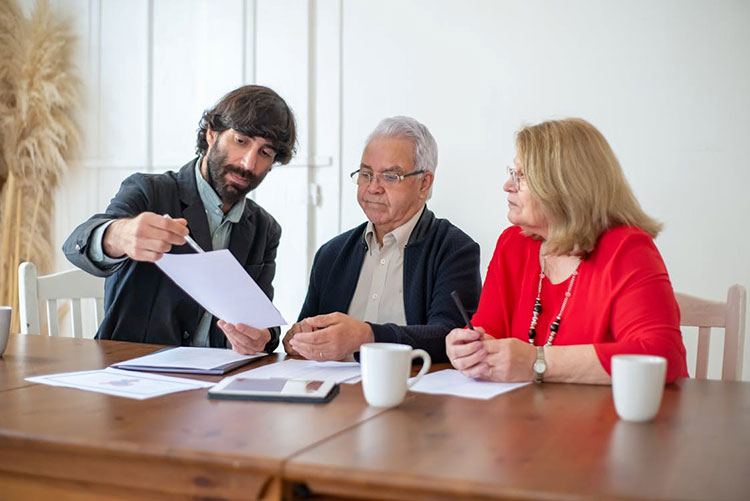
Magnuson Lowell Blog
Each week we post a blog about relevant legal issues. Glance through our various topics to learn more about a particular legal situation.
These articles are for limited informational purposes only and are not, nor are they intended to be, legal advice. You should not rely on this information for your case and should consult with an attorney for advice regarding your individual situation.
Most Recent Posts ...
Posted on: 3/31/2025
Posted on: 3/24/2025
Posted on: 3/17/2025
Posted on: 3/10/2025
Search All Blog Posts
Blog Post Archive Categories
- Reconciling After a Divorce Filing
- Dividing Retirement in Divorce - Do I Need a QDRO?
- Options for Dealing with Real Estate in Your Washington State Divorce
- Positive Thoughts After Losing a Family Law Motion
- Supervised Visitation for Washington Parenting Plans: What You Need to Know
- Filing for Immediate Restraining Orders in King County
- (Redmond/Criminal Defense) Time Matters for a DUI
- (Redmond/Criminal Defense) Field Sobriety Tests - What Not to Do
- (Redmond/Criminal Defense) - The (Redmond/Criminal Defense) - The Ability to Remain Silent
- Battling Father Time: Crafting Your Legacy with Precision
- Tips for Talking to Your Family About Your Estate Plan
- How to Choose Your Personal Representative for your Will
- What is a Trial Continuance in Washington State?
- Renewing a Domestic Violence Protection Order in Washington State
- Little Known Washington Driving Laws
- Divorce Mediation Tips for High-Conflict Couples
- Dealing with Small Business During a Divorce
- The Role of Financial Advisors in High-Asset Divorces
- Why Expediency is Important After Your Car Accident
- Understanding Independent Medical Examinations (IMEs) in Washington State
- It only takes 3 seconds...
- Gotta love our court system!
- (Redmond/Crazy Lawsuit) The Walking Dead: or Not!
- (Redmond/Crazy Lawsuit) Here Comes Football - and Litigation
- Honoring Our Heroes: A Thank You to All Who Have Served!
- Happy Halloween from Magnuson Lowell
- 10 Tips You Need To Know Before Getting On A Motorcycle
- Top 10 Tips You Need To Know Before Getting On A Motorcycle
- Top 10 Tips Riders Need To Know Before Getting On A Motorcycle
- In a Car Collision...Now What?
Communicating with Your Spouse During a Divorce

Divorce is a challenging and emotionally charged process, often accompanied by a breakdown in communication between spouses. In any legal case, but especially divorces and other family matters, finding effective ways to communicate can significantly impact the outcome of the proceedings. Here are some tips exploring the importance of communication, especially when pursuing cooperative and collaborative settlement options. We'll also discuss how to navigate communication challenges through legal channels and introduce helpful applications designed to streamline communication, particularly in cases involving children.
1. The Significance of Communication in Divorce:
Effective communication is the cornerstone of any successful divorce, particularly when seeking a cooperative and collaborative approach. Open lines of communication can help minimize misunderstandings, reduce conflict, and pave the way for smoother negotiations. It is crucial to recognize that maintaining a level-headed and respectful dialogue with your spouse can contribute to a more positive resolution.
2. Cooperative and Collaborative Settlement Options:
In Washington, mediation and other dispute resolution processes are often required. These approaches prioritize open communication and mutual cooperation, aiming to reach agreements outside of a courtroom setting. By working together with your spouse and respective legal representatives, you can often find creative solutions that meet the needs and concerns of both parties.
3. Navigating Communication Challenges with Legal Assistance:
Despite best efforts, communication breakdowns can still occur during a divorce. In such cases, it's important to enlist the help of experienced family law attorneys who can act as intermediaries. Attorneys can facilitate communication, ensuring that important information is exchanged while mitigating the risk of escalating conflicts. This legal guidance can be especially valuable when dealing with sensitive topics such as child custody, spousal support, and property division.
4. Utilizing Communication Apps for Co-Parenting:
In situations where direct communication is strained, technology can play a supportive role. Applications like "Our Family Wizard" and "Talking Parents" are designed to assist co-parents in managing schedules, sharing important information, and facilitating communication in a structured and documented manner. These tools can be particularly beneficial in cases involving children, helping parents coordinate parenting responsibilities and maintain a focus on the well-being of their children.
Communicating with your spouse during a divorce is a complex process that requires patience, empathy, and sometimes, outside assistance. In Washington, where the legal landscape may present unique challenges, pursuing cooperative and collaborative settlement options can lead to more favorable outcomes. When communication becomes difficult, turning to experienced family law attorneys and leveraging technology can provide the support needed to navigate the complexities of divorce, especially when children are involved. Remember, effective communication is not just a tool for resolving disputes—it's a key factor in building a foundation for a healthier post-divorce relationship. Call today for a free case evaluation.




